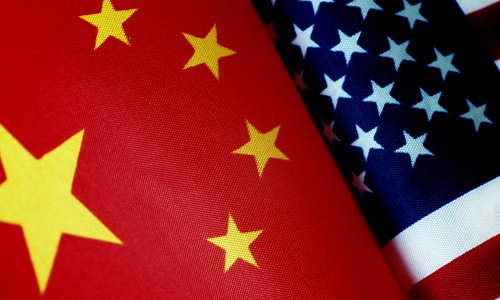HOME >> BUSINESS
US must scrap tariffs for trade deal
By Wang Cong Source:Global Times Published: 2019/11/5 20:53:42
Demands by Washington need to be feasible

Photo: VCG
The US would have to cancel some of its tariffs on hundreds of billions of dollars worth of Chinese products before Beijing could agree to what has been billed by US officials as a phase-one trade accord, a former Chinese trade official said on Tuesday.
The US is "very anxious' to reach a trade deal with China but Beijing won't agree if the US does not cancel some tariffs, Wei Jianguo, former vice minister of commerce, told the Global Times.
Wei's comment came as some media reports suggested that the US is considering the removal of some tariffs on Chinese products to reach the phase-one agreement.
Among the batches of tariffs that US officials are considering rolling back is a 15 percent duty on about $125 billion worth of Chinese goods imposed on September 1 and a 25 percent tariff on about $250 billion worth of machinery and semiconductors, according to Reuters. The US is also expected to scrap tariffs on $156 billion worth of Chinese goods scheduled to take effect on December 15, Reuters reported,citing sources.
But China will not accept a phase one deal if the US only suspends new tariffs that it has threatened to impose on Chinese goods, sources also told the Global Times on Tuesday.
"I don't know why there is such a buzz about this. It should be clear to everyone that rolling back tariffs must be part of this interim trade agreement," Li Yong, deputy chair of the expert committee of the China Association of International Trade, told the Global Times on Tuesday. "The trade war is all about tariffs. How can we not include tariffs in a trade deal?"
Li said that he is not aware of which tariffs China is asking the US to remove but "the ultimate goal should be all tariffs being removed. The tariffs have hurt businesses in both countries very badly." He added that China might also consider canceling some tariffs, for example on US agricultural products.
China has imposed tariffs at various rates on about $185 billion worth of US products, including US agricultural goods, in response to US tariffs on almost all Chinese products. Also, China on Friday won a case against the US that predates the trade war at the WTO and gained approval from the world trade body to impose retaliatory tariffs on $3.6 billion of US products.
"There is a possibility that China could also partially cancel the tariffs on US products, especially on US agricultural goods, because it does not make sense to impose tariffs on things that we are trying to buy more of," Li said.
The US is reportedly asking China to increase purchases of US farm products, though Chinese officials have said that the amount should be reasonable. Other US demands should also be feasible, according to Wei, who is now a vice chairman of the China Center for International Economic Exchanges.
For instance, "it is unrealistic for China to open up its market at once and eliminate the negative list, as the US demanded," he said.